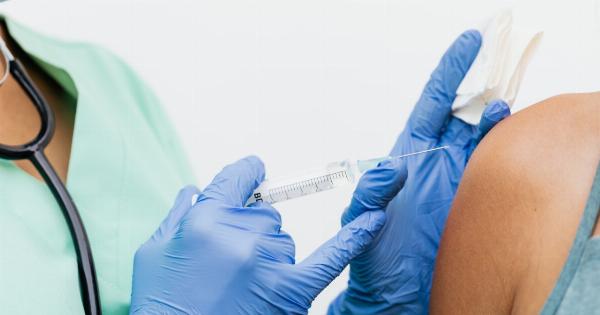Meningococcal disease is a severe bacterial infection that can lead to meningitis (inflammation of the protective membranes covering the brain and spinal cord) and sepsis (blood infection).
It is caused by the Neisseria meningitidis bacterium, which has several serogroups, including A, B, C, W, X, and Y. Among these, serogroup B is responsible for a significant number of cases, particularly in teenagers.
Understanding Meningococcal Serogroup B
Meningococcal serogroup B is a major concern due to its potential severity and high incidence among teenagers and young adults. It is responsible for approximately half of all cases of meningococcal disease in many countries.
The bacteria spread through respiratory droplets when an infected individual coughs or sneezes, making close contact a significant risk factor for transmission.
The Dangers of Meningococcal Serogroup B
Meningococcal serogroup B can result in severe health complications, permanent disabilities, or even death. The initial symptoms resemble those of common ailments, such as the flu, making early diagnosis and treatment challenging.
Some of the potential complications include:.
– Meningitis: Inflammation of the membranes surrounding the brain and spinal cord can lead to brain damage, hearing loss, seizures, or developmental delays.
– Sepsis: A blood infection that can cause organ failure, tissue damage, and mortality.
– Meningococcal pneumonia: A lung infection that occurs when the bacteria enter the lungs, leading to respiratory failure.
– Waterhouse-Friderichsen syndrome: A rare but severe complication of meningococcal disease characterized by adrenal gland failure, severe bleeding, and shock.
– Long-term effects: Survivors of meningococcal disease may face long-term consequences, including limb amputations, hearing loss, learning disabilities, and psychological trauma.
Current Meningococcal Vaccination Programs
To combat the threat of meningococcal disease, many countries have implemented routine vaccination programs targeting different serogroups.
Historically, vaccines against serogroups A, C, W, and Y have been available, offering protection against these strains of the bacteria.
However, until recently, a vaccine for meningococcal serogroup B was not available. This left a significant gap in protection strategies, especially for teenagers who are highly susceptible to this serogroup.
Fortunately, in the past decade, advancements in vaccine development have led to the introduction of effective vaccines against meningococcal serogroup B.
Importance of Vaccinating Teenagers
Vaccinating teenagers against meningococcal serogroup B is vital for several reasons:.
– Increased vulnerability: Teenagers are at a higher risk of contracting meningococcal disease due to their close living quarters in schools, colleges, and dormitories.
Additionally, their potentially risky behaviors, such as intimate kissing or sharing drinks, further increase their susceptibility.
– Asymptomatic carriers: Up to 10% of teenagers may carry the meningococcal bacteria without experiencing symptoms.
These individuals can unknowingly spread the infection to others, highlighting the importance of vaccinating teenagers to prevent transmission and outbreaks.
– Herd immunity: Vaccinating a significant portion of the population, including teenagers, creates herd immunity.
This form of indirect protection helps shield vulnerable individuals who cannot receive the vaccine due to medical reasons.
– Prevention is key: Meningococcal disease can progress rapidly, and delaying vaccination can have severe consequences.
Vaccinating teenagers ensures early protection against this potentially life-threatening infection.
– Long-lasting immunity: Meningococcal serogroup B vaccines have been shown to provide long-lasting protection against the bacteria, reducing the risk of infection throughout a teenager’s crucial adolescent years.
– Public health impact: By vaccinating teenagers against meningococcal serogroup B, the overall burden of meningococcal disease can be significantly reduced in communities, leading to improved public health outcomes.
Vaccine Safety and Efficacy
Meningococcal serogroup B vaccines have undergone rigorous testing to ensure safety and efficacy.
These vaccines have been shown to be generally well-tolerated, with common side effects including temporary soreness at the injection site, mild fever, and fatigue. Serious adverse reactions are rare.
Studies have demonstrated the high effectiveness of meningococcal serogroup B vaccines in preventing the disease. Vaccinated individuals have a significantly reduced risk of contracting meningococcal serogroup B compared to unvaccinated individuals.
By vaccinating teenagers, the impact on both individual and community health can be substantial.
The Role of Healthcare Providers and Educational Institutions
Healthcare providers and educational institutions play a crucial role in promoting and facilitating meningococcal serogroup B vaccination among teenagers. This can be achieved through:.
– Awareness campaigns: Educating parents, teenagers, and school staff about the dangers of meningococcal disease and the importance of vaccination is essential.
This can be done through informational materials, workshops, and community programs.
– Vaccine availability: Ensuring that meningococcal serogroup B vaccines are readily accessible to teenagers by incorporating them into routine immunization schedules and collaborating with healthcare providers to offer vaccinations in schools and colleges.
– Collaboration: Building partnerships between healthcare providers, schools, and communities to create comprehensive vaccination programs and increase vaccination rates among teenagers.
– Counseling and guidance: Healthcare providers should proactively discuss the benefits, safety, and importance of meningococcal serogroup B vaccination with teenagers and their parents to address any concerns or misconceptions.
Conclusion
Meningococcal serogroup B is a significant threat to teenagers, leading to severe complications and long-term consequences. As part of comprehensive public health initiatives, vaccinating teenagers against meningococcal serogroup B is critical.
By raising awareness, ensuring vaccine availability, and collaborating with healthcare providers and educational institutions, we can protect this vulnerable population and reduce the burden of meningococcal disease in communities.































